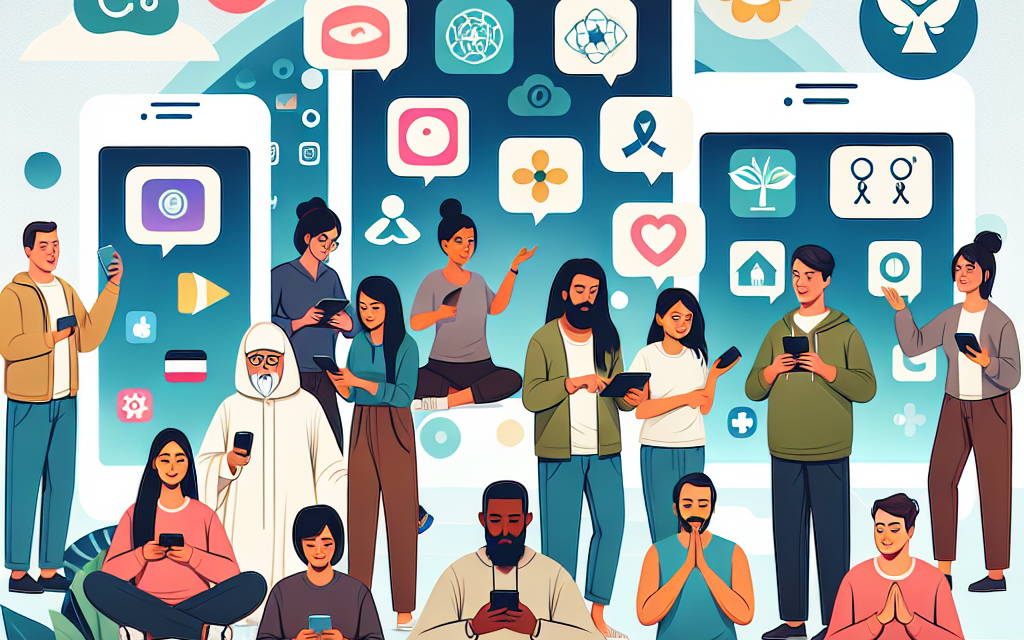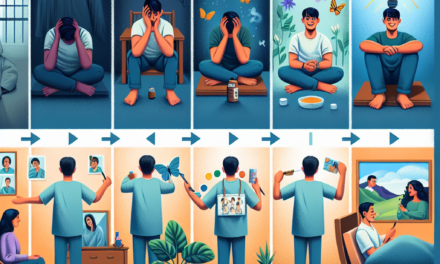Embracing Technology in Recovery: The Advantages of Sobriety Apps
In recent years, the landscape of addiction recovery has undergone a significant transformation, largely due to the advent of technology. Sobriety apps have emerged as powerful tools that support individuals on their journey to recovery. These applications offer a range of features designed to help users track their sobriety, connect with support networks, and access resources that promote a healthier lifestyle. This article explores the advantages of sobriety apps, delving into their functionalities, benefits, and the impact they have on recovery.
1. The Rise of Sobriety Apps: A Technological Revolution in Recovery
The integration of technology into addiction recovery is not merely a trend; it represents a fundamental shift in how individuals approach sobriety. The rise of sobriety apps can be attributed to several factors:
- Increased Accessibility: With smartphones becoming ubiquitous, sobriety apps are easily accessible to anyone with a mobile device. This accessibility allows individuals to seek help and support at any time, breaking down barriers that may have previously hindered their recovery journey.
- Personalization: Many sobriety apps offer personalized features that cater to the unique needs of each user. This customization can include tailored recovery plans, reminders, and motivational messages that resonate with the individual’s specific circumstances.
- Community Support: Sobriety apps often include social networking features that connect users with others in recovery. This sense of community can be invaluable, providing encouragement and accountability.
- Data Tracking: Users can track their progress through various metrics, such as days sober, triggers, and emotional states. This data can help individuals identify patterns and make informed decisions about their recovery.
- Cost-Effectiveness: Many sobriety apps are free or low-cost, making them an affordable option for individuals seeking support without the financial burden of traditional therapy or rehabilitation programs.
As the stigma surrounding addiction continues to diminish, more individuals are turning to technology for support. The convenience and anonymity offered by sobriety apps make them an attractive option for those who may be hesitant to seek help in traditional settings.
2. Key Features of Sobriety Apps: Tools for Success
Sobriety apps come equipped with a variety of features designed to assist users in their recovery journey. Understanding these features can help individuals choose the right app for their needs. Some of the most common features include:
- Progress Tracking: Many apps allow users to log their sobriety milestones, such as the number of days sober. This feature can provide a sense of accomplishment and motivation to continue on the path to recovery.
- Goal Setting: Users can set personal goals related to their sobriety, such as attending a certain number of meetings or engaging in healthy activities. This goal-oriented approach fosters accountability and encourages proactive behavior.
- Daily Motivational Messages: Many apps provide daily quotes or affirmations that inspire users to stay committed to their recovery. These messages can serve as a reminder of the reasons for sobriety and the benefits it brings.
- Community Forums: Some apps feature forums or chat rooms where users can connect with others in recovery. This sense of community can help combat feelings of isolation and provide a platform for sharing experiences and advice.
- Resource Libraries: Sobriety apps often include access to articles, videos, and other resources that educate users about addiction, coping strategies, and healthy living.
These features not only enhance the user experience but also empower individuals to take an active role in their recovery. By leveraging technology, users can create a personalized recovery plan that aligns with their goals and lifestyle.
3. The Psychological Benefits of Using Sobriety Apps
The psychological impact of sobriety apps cannot be overstated. Research has shown that technology can play a significant role in mental health and well-being, particularly for those in recovery. Some of the psychological benefits include:
- Increased Motivation: Tracking progress and receiving daily motivational messages can boost an individual’s motivation to stay sober. The visual representation of their achievements can reinforce positive behavior and encourage continued commitment.
- Enhanced Coping Skills: Many sobriety apps provide resources and tools for managing cravings and triggers. By equipping users with coping strategies, these apps can help individuals navigate challenging situations more effectively.
- Reduced Feelings of Isolation: Connecting with others through community forums can alleviate feelings of loneliness and isolation. Sharing experiences and receiving support from peers can foster a sense of belonging and understanding.
- Improved Self-Efficacy: As users engage with the app and achieve their goals, their confidence in their ability to maintain sobriety increases. This sense of self-efficacy is crucial for long-term recovery.
- Access to Immediate Support: Many apps offer features that allow users to reach out for help in moments of crisis. This immediate access to support can be a lifeline for individuals struggling with cravings or emotional distress.
By addressing the psychological aspects of recovery, sobriety apps can significantly enhance an individual’s overall well-being and resilience. The combination of technology and mental health support creates a powerful tool for those seeking to overcome addiction.
4. Case Studies: Success Stories from Sobriety App Users
Real-life success stories can provide valuable insights into the effectiveness of sobriety apps. Here are a few case studies that highlight the positive impact these applications have had on individuals in recovery:
- Case Study 1: Sarah’s Journey – Sarah, a 28-year-old woman, struggled with alcohol addiction for several years. After attending a rehabilitation program, she discovered a sobriety app that allowed her to track her progress and connect with others in recovery. Over the course of six months, Sarah logged over 180 days sober and found a supportive community that encouraged her to stay committed. The app’s daily motivational messages and goal-setting features played a crucial role in her success.
- Case Study 2: John’s Transformation – John, a 35-year-old man, faced challenges with substance abuse for over a decade. After seeking help, he began using a sobriety app that provided resources for managing cravings and connecting with support groups. Within three months, John reported a significant reduction in cravings and an increased sense of control over his life. The app’s progress tracking feature motivated him to stay sober and celebrate his milestones.
- Case Study 3: Emily’s Support Network – Emily, a 22-year-old college student, turned to a sobriety app after realizing her drinking habits were affecting her academic performance. The app’s community forums allowed her to connect with peers who shared similar experiences. Through these connections, Emily found accountability and encouragement, leading her to maintain her sobriety for over a year. The app’s resource library also provided her with valuable information on healthy coping strategies.
These case studies illustrate the diverse ways in which sobriety apps can support individuals in their recovery journeys. By providing tools, resources, and community connections, these applications empower users to take charge of their sobriety and achieve lasting change.
5. The Future of Sobriety Apps: Innovations and Trends
The future of sobriety apps is promising, with ongoing innovations and trends that aim to enhance their effectiveness. Some emerging trends include:
- Integration with Wearable Technology: As wearable devices become more popular, integrating sobriety apps with these technologies can provide users with real-time data on their physical and emotional states. This integration can help individuals identify triggers and manage cravings more effectively.
- Artificial Intelligence (AI) and Machine Learning: The use of AI can personalize the user experience by analyzing data and providing tailored recommendations. This technology can enhance goal-setting and progress tracking, making the app more responsive to individual needs.
- Telehealth Integration: The incorporation of telehealth services within sobriety apps can provide users with access to professional support and counseling. This feature can bridge the gap between technology and traditional therapy, offering a comprehensive approach to recovery.
- Gamification: Adding gamification elements, such as rewards and challenges, can increase user engagement and motivation. By making recovery more interactive and enjoyable, users may be more likely to stick with their sobriety goals.
- Focus on Holistic Wellness: Future sobriety apps may expand their focus to include holistic wellness practices, such as mindfulness, meditation, and physical fitness. By addressing the overall well-being of users, these apps can promote a more balanced approach to recovery.
As technology continues to evolve, sobriety apps will likely become even more sophisticated and effective in supporting individuals on their recovery journeys. The integration of innovative features and a focus on user experience will play a crucial role in shaping the future of addiction recovery.
Conclusion: The Transformative Power of Sobriety Apps
In conclusion, sobriety apps represent a significant advancement in the field of addiction recovery. By embracing technology, individuals can access a wealth of resources, support, and tools that empower them to take control of their sobriety. The advantages of sobriety apps are manifold, including increased accessibility, personalized features, psychological benefits, and success stories that highlight their effectiveness.
As we look to the future, the continued innovation in sobriety apps promises to enhance the recovery experience for countless individuals. By integrating emerging technologies and focusing on holistic wellness, these applications will play an increasingly vital role in supporting those on their journey to sobriety.
Ultimately, embracing technology in recovery is not just about convenience; it is about creating a supportive environment that fosters growth, resilience, and lasting change. For anyone seeking to overcome addiction, sobriety apps offer a beacon of hope and a pathway to a healthier, more fulfilling life.





